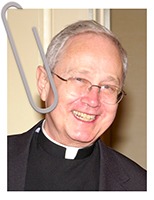In my teen years, I was fascinated by Star Trek. But I would never consider myself a “Trekkie“. In the years since, Star Trek merchandise has generated some $4 billion in sales. I was surprised to learn there are a number of new sequels and prequels in production so many decades after the height of its popularity.
Perhaps a trademark of the franchise is its presentation of teleportation. Teleportation is the dream of instantaneous travel. It gave birth to the phrase “Beam me up, Scotty!”
As we celebrate ”Word of God Sunday”, I reflected on the change in the way I read the Bible. I sometimes wish I could be teleported back to the days of the early church and experience Jesus as they did. If we could teleport back then bible reading would surprise us.
“The Chosen” – teleporter to a deeper understanding scripture
In an apparent contradiction, the first two seasons of “The Chosen” are still somewhat under the radar in spite of over 300 million views around the world in the past two years
For most of my life, I have read the bible rather than experienced it. It was more “their” history than mine.
“The Chosen” brings me closer to experiencing how shocking and challenging Jesus’ call, teaching and impact was on those who were chosen. I have been teleported into their world. Its imaginative presentations are rooted in what we now know of their life and culture. These insights help me understand better the impact on their lives.
The apostles had full lives with families, jobs, commitments, and personal challenges. They were faithful Jews. Following Jesus required real sacrifice and faith. But like any life-changing decision made by a human being, it involved questioning, doubt, faith, and trust. . Thanks to “The Chosen” these men and women have now become much more real.
For example, I never appreciated the tense challenge Simon and Andrew faced. Remember, Matthew was an apostate Jew. He made his living from collecting their exorbitant taxes. Now he was also someone they are supposed to work with and love!
Mary Magdalene bravely leaves her old ways behind. But the wounds of her former life remain. She still needs to be reminded of God’s love for her. I was touched by the joy of both Jesus and the children he was teaching.
More than ever, I see the apostles as real people like me. That is such a different understanding from abstract historical figures without flesh and blood.
Praying the Gospels
I have shared that in recent years I am beginning to read the scriptures the way Vincent read them. He seemed to picture himself in every passage of the Bible he read.
Jesuits call this “composition of place”.
In the composition of place, a person makes himself present, as it were, to the place where the event occurred, or to some other place. With the eyes of the imagination he beholds everything which is found, said, or done there, or is thought to be done there. He can also imagine that all these things are similarly present to him in the place where he is. (Dir 23: 66)
I also shared how “binge-reading” the Gospels opened up new horizons beyond reading just isolated passages without understanding how the context reveals unsuspected levels of meaning.
Putting all this together helps me understand better why Pope Francis called for an annual Word of God Sunday. He urges us to encounter rather than just read the Gospels.
No guarantee… but…
- Watch the series.
- View an excellent YouTube series highlighting what is often missed in a first watching.
- Go deeper with a discussion guide.
Click below for an audio version of this Vincentian Mindwalk


My comment on your April 22, 2020 reflection, “The Acts of the Apostles Are About Us – Today,” mentions something I read years ago from former St. Joseph Seminary, Dunwoodie, and Fordham University professor Richard Dillon. This same comment may apply here. That is to say, since biblical statements were statements to situations, bible readers are challenged to see parallels in their lives and situations today.
It goes without saying that to be able to connect Scriptures to today’s situation, readers are to have a good grasp of the core of Scriptures and also of reality. Or as Jacque Delarue might put it, the Gospel and life are the two fundamental sources, as they were for St. Vincent.
Wrote Delarue of St. Vincent: “He wanted people to put the whole of the Gospel into the whole of their lives, and he never wearied of deepening both with all the faith that God has put into his heart. That is why all he says to us has the simplicity of our everyday life and the penetrating strength of the Word of God.”
It all assumes, though, that we read, listen and ponder.